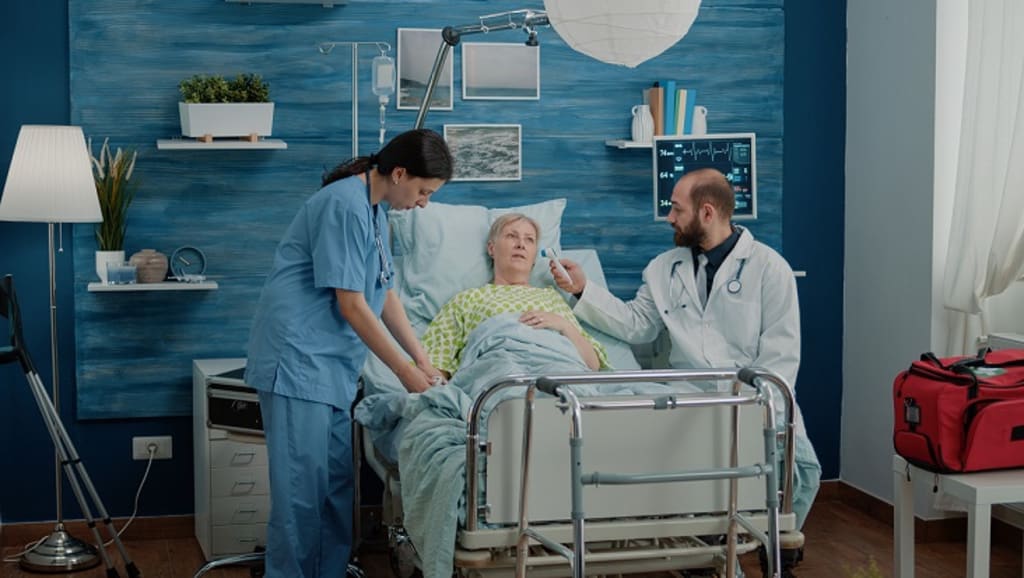How are Neurologists Able to Help Patients With Post-Concussion Syndrome?
Overall, neurologists specialise in diagnosing and treating nervous system disorders. They are genuinely referred to as a god for those suffering from PCS and help them by providing education and support to help them better understand and manage their condition.

Neurologists diagnose the condition, develop an individualised treatment plan, and work with patients to manage symptoms. Here is a complete overview of neurologists concerning PCS!
Post-concussion syndrome (PCS) is a complex condition that can occur after a traumatic brain injury (TBI). Various symptoms characterise it, including headaches, dizziness, fatigue, and difficulty with memory and concentration. The condition of neurologist concussion can be debilitating and can have a significant impact on a person's quality of life.
Neurologists are medical doctors who specialise in diagnosing and treating conditions that affect the nervous system, including the brain and spinal cord. They play a crucial role in helping patients with neurologist concussions.
Neurologists are called to evaluate patients who have sustained a concussion and determine the injury's severity. They may also work with other healthcare professionals, such as primary care physicians, emergency medicine doctors, and physical therapists, to develop a treatment plan and monitor the patient's recovery. Let's begin the article and figure out how neurologists help patients with PCS.
4 Steps Neurologists Follow to Help Patients with Post-Concussion Syndrome
Neurologists play an essential role in helping patients with PCS. They are trained to diagnose the condition and work with patients to develop a comprehensive treatment plan that addresses the specific symptoms. With the help of a neurologist, patients with PCS can work to improve their quality of life and manage their symptoms effectively.
1: Diagnosis
The first step in treating PCS is to diagnose the condition accurately. This can be a challenging task, as the symptoms of PCS are often similar to those of other conditions, such as migraine headaches and depression. A neurologist will perform a thorough physical examination and conduct various tests, including imaging studies (such as a CT scan or MRI), cognitive difficulties, and neuropsychological evaluations. These tests help identify any structural or functional changes in the brain that may contribute to the patient's symptoms.
2: Individualised Treatment Plan
Once a diagnosis of PCS has been made, a neurologist will work with the patient to develop an individualised treatment plan. This plan may include a combination of medications, physical therapy, and cognitive therapy.
In addition to these specific treatments, a neurologist may also recommend lifestyle changes to help manage symptoms of PCS. For example, patients may be advised to avoid activities that exacerbate their symptoms, such as prolonged computer use or reading. They may also be advised to get plenty of rest, exercise regularly, and eat a healthy diet.
3: Pain Management in PCS
Pain management is essential in treating post-concussion syndrome (PCS) in Fort Worth, Texas. Many patients with PCS experience chronic headaches, neck pain, and other types of pain that can significantly impact their quality of life.
Several different approaches to pain management in Fort Worth Texas, may be used to treat PCS. These include:
- Medications
- Physical therapy
- Chiropractic care
- Acupuncture
- Massage therapy
- Mind-body therapies
It is important to note that only some approaches may suit some patients. A neurologist will work with each patient to determine the best course for their needs.
In addition to these specific treatments, a neurologist may recommend lifestyle changes to help pain management in Fort Worth, Texas. For example, patients may be advised to avoid activities that exacerbate their pain, such as prolonged computer use or reading. They may also be advised to get plenty of rest, exercise regularly, and eat a healthy diet.
4: Rehab Centres
Several rehabilitation centres in Texas specialise in treating patients with post-concussion syndrome (PCS) and other traumatic brain injuries (TBI). Some of the best rehabilitation centres in Fort Worth, Texas, include:
- Cook Children's Rehabilitation Hospital
- Texas Health Harris Methodist Hospital Fort Worth
- Kindred Rehabilitation Hospital Fort Worth
- Fort Worth Neurocare
- The TBI Clinic
These are some of the best rehab centres in fort worth, and it is essential to note that not all of these centres may be suitable for every patient. A neurologist will work with each patient to determine the best centre for their needs. With the help of a neurologist and other healthcare professionals, patients with TBI and PCS can work to manage their symptoms and improve their overall function.
Conclusion
Overall, neurologists specialise in diagnosing and treating nervous system disorders. They are genuinely referred to as a god for those suffering from PCS and help them by providing education and support to help them better understand and manage their condition.
These are some of the best rehab centres in fort worth, and it is essential to note that not all of these centres may be suitable for every patient. A neurologist will work with each patient to determine the best centre for their needs. With the help of a neurologist and other healthcare professionals, patients with TBI and PCS can work to manage their symptoms and improve their overall function.
About the Creator
Enjoyed the story? Support the Creator.
Subscribe for free to receive all their stories in your feed. You could also pledge your support or give them a one-off tip, letting them know you appreciate their work.





Comments
There are no comments for this story
Be the first to respond and start the conversation.